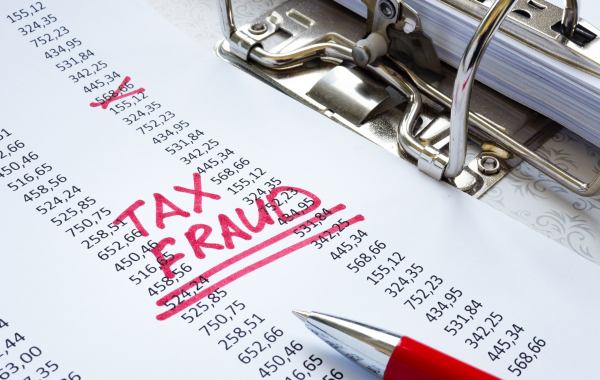Types of Tax Fraud
IRS Phone Scams
The IRS generally first mails a bill to the taxpayer who owes taxes. There are specific ways to pay taxes. The agency and its authorized private collection agencies will not:
- Leave pre-recorded, urgent, or threatening messages on an answering system.
- Threaten to immediately bring in local police or other law enforcement groups to arrest the taxpayer for not paying, deport them or revoke their licenses.
- Call to demand immediate payment with a prepaid debit card, gift card or wire transfer.
- Ask for checks to third parties.
- Demand payment without giving the taxpayer an opportunity to question or appeal the amount owed.
Criminals can fake or spoof caller ID numbers to appear to be anywhere in the country. Scammers can even spoof an IRS office phone number or the numbers of various local, state, federal or tribal government agencies.
Recalculation Scams
Scammers send fake text messages or phishing emails with eye-catching subject lines about tax refunds or recalculated rebates. Since the messages look like they’re from the IRS, recipients often take them seriously.
These messages almost always offer a larger tax refund payment than you were expecting. In order to claim it, you’re asked to click on a link and enter sensitive information — such as your driver’s license number, SSN, or even your bank account information.
The IRS does not initiate contact with taxpayers by email to request personal or financial information. Generally, the IRS first mails a paper bill to the person who owes taxes.
Canceled Social Security Number
Many scams start with a fraudster notifying you about a fake problem, and then offering to help you resolve it. Scams about Social Security numbers getting “canceled” or “suspended” skyrocketed a few years ago and have been trending ever since.
Social Security scams are popular during tax season because your Social Security number is closely tied to your ability to file state and federal taxes. Scammers will threaten your SSN in order to get you to click on malicious links, download infected attachments, or send them money.
Warning signs: Any mention of suspension or cancellation of your SSN is an immediate red flag. Don’t engage with any phone call, unsolicited email, or text message that’s supposed to be from the Social Security Administration. The SSA will contact you by sending mail to your residence.
“Ghost” Tax Preparers
Scammers disguised as tax professionals commit fraud using another person’s tax information. Their goal is to misreport your income and pocket the resulting tax refund. Dishonest tax preparers will refuse to sign your tax return with their Preparer Tax Identification Number (PTIN), which means that they won’t be held liable for fraud — you will. “Ghost” preparers are also known for putting down their own bank account information on your tax returns so that they’ll get your refund.
Warning signs: Avoid tax promoters who promise amazing tax refunds if you use their services. This is a sign that they’re willing to fraudulently inflate income on your tax forms so that you’ll qualify for more deductions and tax credits.




